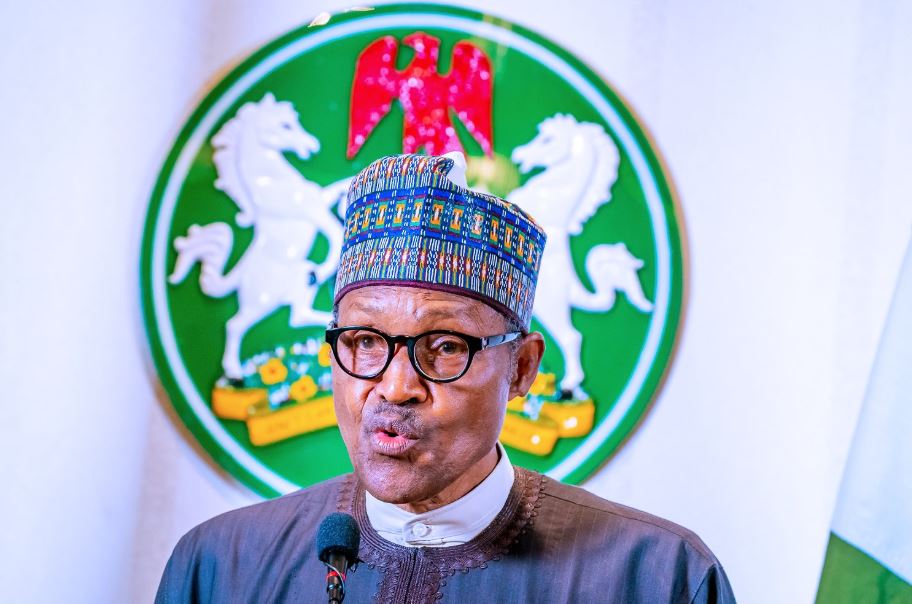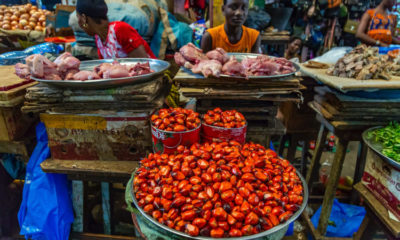Business & Economy
Nigeria’s Debts Stock Hits N32.92T in 2020; Inflation Rises to 17.33% in Feb. 2021

In the just concluded week, the total debt figure released by the Debt Management Office (DMO) showed that Nigeria’s total public debt stock surged by 20.12% to N32.92 trillion as of December 2020 (from N27.40 trillion as of December 2019).
The increase in the country’s total debt stock was chiefly due to a sharp rise in external debt by 40.82% to N12.71 trillion (or USD33.35 billion at N381.00/USD) as of December 2020 from N9.02 trillion (or USD27.68 billion at N326.00/USD) in December 2019 – Nigeria received USD3.54 billion worth of loan from International Monetary Fund (IMF) and additional loan of N1.43 billion from International Development Association (IDA) within the period under review.
Also, the depreciation of the Naira against the greenback adversely impacted the external debt; year-on-year, Naira depreciated against the USD by 16.87% to close at N381/USD as at December 2020. Hence, external debt service payments rose to N560.36 billion (or USD1.51 billion) in FY 2020 from N414.00 billion (or USD1.33 billion) printed in FY 2019.
Further breakdown of the total external debt stock in FY 2020, showed that Multilateral loan accounted for 53.78% (USD17.93 billion) of which loans from the International Development Association (IDA) was USD11.12 billion while that of the IMF was USD3.54 billion. Bilateral loan accounted for 12.17% (USD4.06 billion) of which loan from China (Exim Bank of China) was USD3.26 billion while the loan from France was USD0.50 billion in FY 2020.
Commercial loan accounted for 34.05% (USD11.36 billion) of which Eurobonds was USD10.87 billion while Diasporal bond was USD0.30 billion. Local debt stock increased by 9.96% to N20.21 trillion in FY 2020 (from N18.38 trillion in 2019). Breakdown of the domestic debt figure showed that FG’s domestic debt stock rose to N16.02 trillion in 2020 (from N14.27 trillion in 2019).
Domestic debt service payment increased by 13.25% to N1.88 trillion in 2020 from N1.66 trillion recorded in 2019. In another development, data from the National Bureau of Statistics (NBS) showed that headline inflation sustained its upward trajectory, rising to 17.33% in February 2021 (the highest level since April 2017). This was higher than 16.47% printed in January 2021.
The increase in inflation rate was broad-based across the food and non-food categories; albeit pressure from food prices was more intense. Notably, major drivers of the rising inflation include exchange rate pressure, an increase in logistics cost amid rising energy prices and weaker harvest season amid insecurity in the food-producing region of the country amongst others.
Food inflation advanced to 21.79% (higher than 20.57% printed in January) driven by rising in prices of bread, cereals, potatoes, yams and other tubers, meat, fruits among others. Imported food index also upped by 16.78% (higher than 16.70% in December) amid depreciation of the Naira at the BDC and Parallel markets – specifically, two months moving average foreign exchange rates at the BDC and Parallel markets rose m-o-m by 0.35% and 0.25% to N472.24/USD and N478.33/USD in February 2021.
On the other hand, Core inflation climbed to 12.38% (from 11.85% in January) driven by rising in passenger transport, medical services, hospital services and pharmaceutical products amongst others. Urban and rural annual inflation rates rose higher y-o-y to 17.92% and 16.77% respectively.
With the high pace at which the country amasses debt, especially foreign debt, without a corresponding healthy growth in revenue, it may run into difficulty servicing its foreign debt amid its over-reliance on crude oil revenue. Hence, given the largely mono-export proceeds which have continued to put pressure on the Naira against the USD – and partly accounting for the rising inflation –, we expect interest rates to be relatively high this year.















